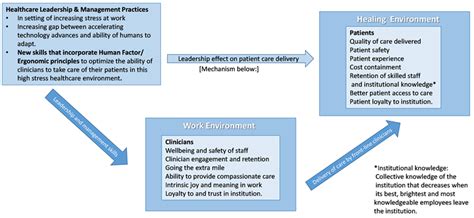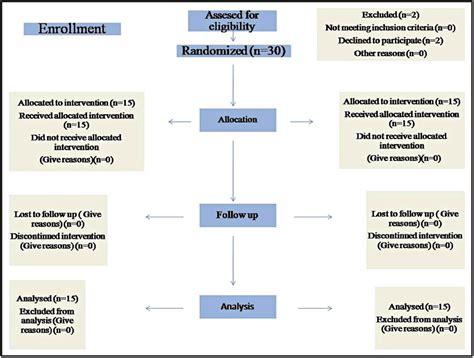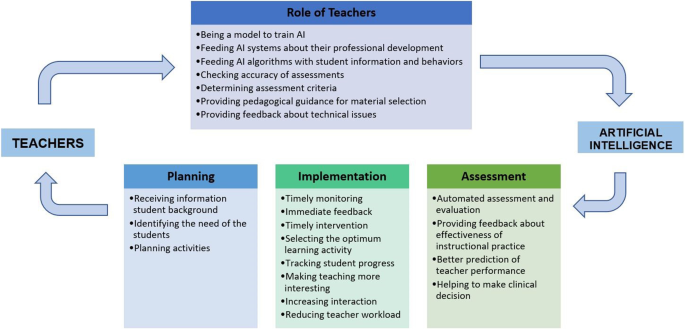Artificial Intelligence (AI) is rapidly transforming various sectors, and education is no exception. In schools, AI is revolutionizing how students learn, how teachers teach, and how educational systems operate. By integrating AI into classrooms, educators can provide personalized learning experiences, streamline administrative tasks, and enhance educational tools. AI also plays a crucial role in improving special education and supporting teacher professional development. This article explores the profound impact of AI on educational technology and teaching methods, highlighting how it is reshaping the future of education for students and educators alike.
Join electrapk.com for a detailed examination of this topic.
1. Personalized Learning:
Artificial Intelligence (AI) is revolutionizing education through personalized learning, an approach that caters to each student’s unique needs, preferences, and learning pace. Traditional education often employs a standardized model, which can result in some students falling behind or others being inadequately challenged. AI tackles this challenge by analyzing data on individual student performance, learning styles, and progress to generate tailored learning plans.
These plans dynamically adjust, presenting more challenging content to high-achieving students while offering additional assistance to those who need it. AI-powered platforms can suggest tailored exercises, resources, and learning pathways that match each student’s unique strengths and weaknesses, fostering engagement and motivation. This personalized approach empowers deeper comprehension as students learn at their own pace, free from the pressure of keeping up with or waiting for others.
In addition, AI tools offer instant feedback, enabling students to promptly recognize and rectify errors, fostering a more effective learning process. Educators also gain valuable insights through detailed analytics that track student progress, empowering them to identify areas requiring additional support or enrichment. Ultimately, AI-driven personalized learning reimagines education as a dynamic and responsive experience, meticulously crafted to meet the individual needs of each learner.

2. Administrative Efficiency:
Artificial Intelligence (AI) is revolutionizing administrative efficiency in schools, empowering educators and administrators to dedicate more time to teaching and student engagement. Traditionally, school administration has been bogged down by numerous time-consuming tasks, including scheduling, attendance tracking, grading, and student record management. AI streamlines these processes through automation, significantly reducing the administrative workload on teachers and staff.
For example, AI systems can automate tasks like class scheduling and timetable optimization, taking into account teacher and student availability. These systems can even anticipate classroom resource needs. Additionally, AI-powered attendance tracking, utilizing facial recognition or other biometric technologies, guarantees accuracy while freeing up teachers to focus on teaching instead of administrative duties.
AI can streamline the often arduous process of grading. AI-powered tools can assess standardized tests, assignments, and even some written work, offering consistent and unbiased feedback. This not only saves time but also reduces human error and bias in the evaluation process.
AI systems excel at managing and analyzing vast amounts of student data, revealing insights into academic performance, behavioral trends, and areas needing attention. This data-driven approach empowers administrators to make informed decisions, implement targeted interventions, and enhance overall school management. Ultimately, AI streamlines administrative tasks, leading to more efficient and responsive school operations that cater to the evolving needs of the educational landscape.

3. Enhanced Educational Tools:
Artificial intelligence has ushered in a new era of enhanced educational tools that go beyond traditional teaching methods, providing dynamic and interactive learning experiences. These tools encompass intelligent tutoring systems, virtual and augmented reality applications, and AI-driven educational software, all designed to make learning more engaging and effective.
Intelligent tutoring systems harness the power of AI to deliver personalized instruction, tailoring their approach to each student’s unique learning pace and style. By mimicking the experience of one-on-one tutoring, these systems provide timely hints, detailed explanations, and constructive feedback as students tackle problems. This individualized attention reinforces understanding and fosters sustained motivation among learners.
AI-powered virtual and augmented reality tools create immersive learning environments that bring abstract concepts to life. Students can engage in interactive experiences, such as exploring historical events, dissecting virtual organisms, or journeying through the solar system, all within the classroom. These experiences enhance the tangibility and memorability of learning, fostering a deeper understanding of the subject matter.
AI-powered educational software offers a rich array of resources, including interactive simulations, adaptive quizzes, and gamified learning platforms. These tools not only boost student engagement but also empower teachers to monitor progress and adapt their teaching methods in real-time. As a result, AI-enhanced educational tools are transforming the learning landscape, making education more accessible, personalized, and effective.

4. Improving Special Education:
AI is transforming special education by providing personalized support for students with diverse learning needs. Traditional approaches often struggle to deliver consistent, individualized attention due to resource constraints. AI addresses this challenge by generating tailored learning plans that adapt to each student’s specific strengths, weaknesses, and learning pace.
AI-driven tools can personalize learning by analyzing a student’s progress and adjusting content to match their cognitive level. This ensures they are challenged appropriately without being overwhelmed. Speech recognition software provides a voice for students with speech impairments, allowing them to communicate effectively. Predictive text and other assistive technologies further support students facing writing challenges.
Furthermore, AI empowers teachers to monitor student progress and pinpoint areas requiring extra assistance, paving the way for more targeted interventions. This utilization of AI fosters inclusivity in special education, equipping students with disabilities to reach their peak potential within a supportive learning environment designed to meet their unique requirements.
5. Teacher Support and Professional Development:
AI significantly assists teachers, promoting their professional growth and reducing their workload. By automating repetitive tasks like grading and attendance tracking, AI empowers teachers to concentrate on delivering instruction and engaging with students. Furthermore, AI offers personalized professional development programs that cater to each teacher’s specific requirements and areas for improvement.
AI-powered platforms analyze teacher performance and recommend tailored resources, workshops, and training programs. These platforms provide ongoing feedback, assisting teachers in refining their teaching methods and staying abreast of current educational trends. Moreover, AI tools foster collaborative learning among educators, facilitating the sharing of best practices and strategies in real-time.
Furthermore, AI can contribute to effective classroom management by offering insights into student behavior and learning progress. This data allows teachers to adapt their teaching strategies to better meet individual student needs. In conclusion, AI empowers educators by enhancing their skills, minimizing administrative tasks, and creating a more collaborative and efficient learning environment.
AI is revolutionizing education by personalizing learning, streamlining administrative tasks, enhancing educational tools, and improving special education. It empowers teachers with better support and professional development opportunities, allowing them to focus more on student engagement and instructional quality. As AI continues to evolve, its integration into schools promises to create more dynamic, inclusive, and efficient learning environments. The ongoing advancements in AI will undoubtedly shape the future of education, making it more adaptive, responsive, and effective for all students.
electrapk.com
